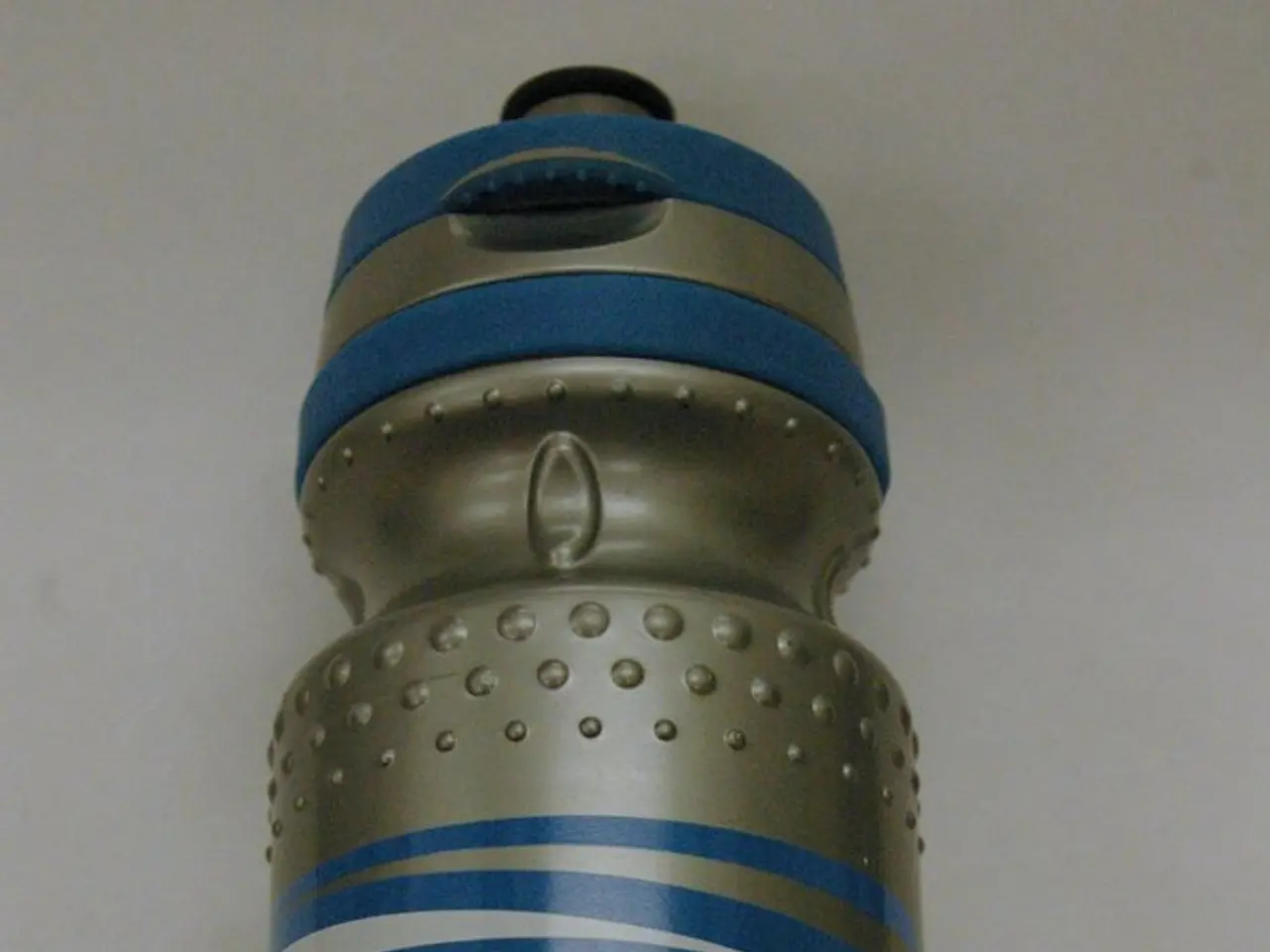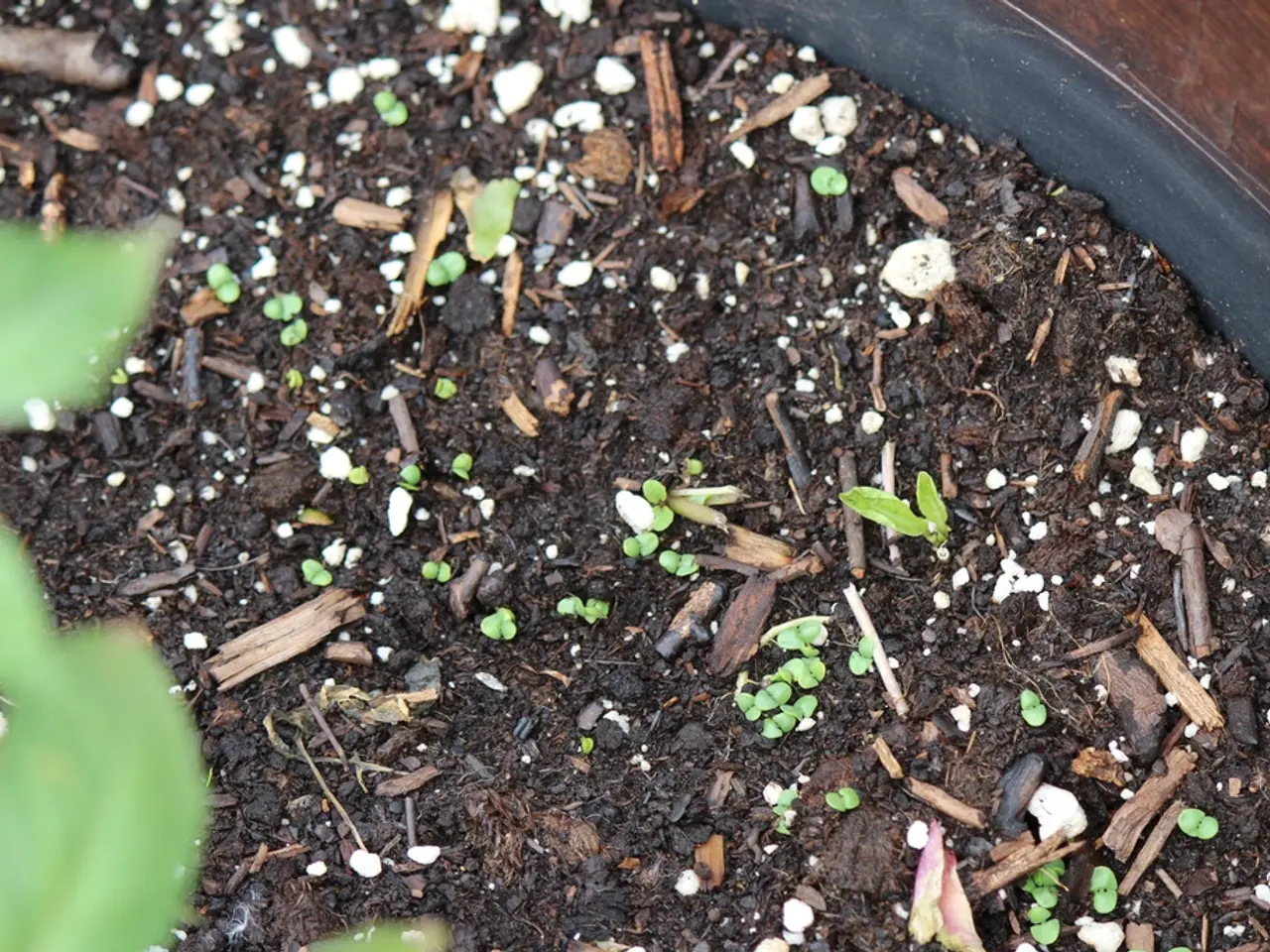Innovation boosts the domain of natural hair care products.
**Natural Hair Care: A Growing Market Embracing Sustainability and Innovation**
The natural hair care industry is experiencing a significant surge, driven by consumer preferences for safer, eco-friendly products. The global natural hair care product market is projected to reach an impressive $16.99 billion by 2030, growing at a 9.4% Compound Annual Growth Rate (CAGR) from 2025 to 2030 [1].
This growth is largely due to increased concerns about hair-related issues such as fall, dandruff, and dryness, coupled with a wellness-oriented mindset among Millennials and Gen Z consumers. As a result, there is a growing preference for natural oils like coconut, argan, and amla, which are valued for their ability to enhance hair strength, shine, and health without the use of harsh chemicals [1].
In addition, there is a shift towards organic, herbal, and plant-based ingredients. Brands like Aveda Corp. are responding to increased awareness of the adverse effects of chemicals on health and the environment [3]. Sensitivities and allergic reactions to chemical-laden conventional hair products have also made consumers more cautious and selective, further fueling demand for natural and hypoallergenic solutions [3].
Scalp care and microbiome-friendly products are a rising niche, emphasizing cruelty-free and sustainable formulations [3]. The haircare industry is progressively focusing on eco-friendly and sustainable products to meet consumer expectations and regulatory pressures [3]. Trends forecast a future where natural ingredients dominate and water and energy conservation play crucial roles in product development [5].
One of the key innovations revolutionizing the natural hair care segment is enzymatic extraction. This method combines cosmetic science and nature, guaranteeing the effectiveness of natural hair care. Enzymatic extraction allows for gentler extraction of bioactive phytochemicals from natural sources like Indian gooseberry, henna, and other plants, improving safety and preserving functionality compared to harsh chemical solvents [2].
Provital's active ingredient, DensinariaTM, is the result of enzymatic extraction and increases the quantity of extracted biomolecules, such as proteins and peptides. DensinariaTM ensures that the peptide and protein biomolecule content reaches 55% compared to conventional methods, using fewer natural resources [4].
DensinariaTM has shown ex vivo effectiveness in increasing hair fiber diameter, making hair 3.3 times more resistant to breakage, and preventing split ends by more than half compared to the placebo [4]. Consumer confidence is important, reflected in efforts for ingredient transparency and certifications like plant-based, organic, or cruelty-free. DensinariaTM is derived from the algae Palmaria palmata, which is responsibly harvested and approved by COSMOS [4].
Beauty is increasingly considered synonymous with health, with cosmetic solutions that act "inside out" gaining traction. Arginine, for instance, is capable of penetrating both the cuticle and the cortex of the hair fiber, presenting a strong affinity for the hair and its strength [4].
Responsible consumerism involves concerns about the ethics of the supply chain, such as responsibly sourcing ingredients. All seaweed and potential waste from enzymatic extraction are transformed into compost, creating a circular economy process [4]. The process of enzymatic extraction is particularly gentle and selective, serving as a potential alternative to traditional solvent-based extraction methods [4].
In conclusion, the current state of natural hair care is marked by strong market growth, evolving consumer preferences towards safer and eco-friendly products, and technological innovations enhancing both efficacy and sustainability. The integration of enzymatic extraction and other green technologies is pivotal in enhancing the efficacy and sustainability of natural ingredients, enabling brands to innovate in this competitive, health-conscious market [1][2][3][4][5].
In the realm of health-and-wellness, there's a rising trend in the natural hair care industry where consumers seeks science-backed formulations that prioritize organic and plant-based ingredients. This preference for skin-care solutions without harsh chemicals extends to scalp care and microbiome-friendly products, ensuring a focus on cruelty-free and sustainable formulations.
One such innovation is enzymatic extraction, a technology that blends cosmetic science with nature, providing gentle yet effective ways to extract bioactive phytochemicals from natural sources. It is instrumental in creating natural hair care solutions that are both safe and functional, respecting consumer expectations and environmentally friendly regulations.




